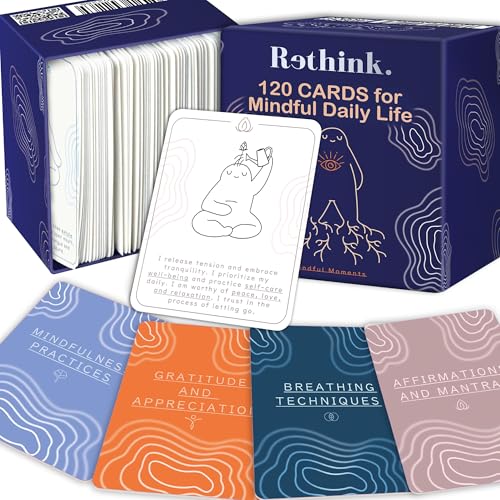I’ve always believed that taking care of our bodies starts with understanding what fuels them best. Minerals might not get as much attention as vitamins, but they’re just as crucial for keeping us healthy and energized. From building strong bones to supporting our immune systems, these tiny powerhouses play a big role in how we feel every day.
It’s easy to overlook the importance of minerals when life gets busy, but our bodies rely on them for so many essential functions. Whether it’s magnesium helping us relax or iron keeping us energized, each mineral has a unique job. The good news? With a little knowledge, it’s simple to make sure we’re getting what we need.
Importance Of Essential Minerals For Optimal Health
Minerals play a foundational role in maintaining the body’s balance and vitality. They support crucial functions like energy production, muscle contraction, and nerve signaling. For those practicing yoga or meditation, keeping this balance strengthens both physical and mental well-being.
Calcium, for example, promotes strong bones and prevents muscle cramps during long yoga sessions. Magnesium reduces stress and enhances relaxation, essential for deep meditation. Iron improves oxygen delivery to muscles, improving stamina for intensive breathwork or dynamic yoga flows.
A diet rich in mineral-dense foods like leafy greens, nuts, seeds, and whole grains provides these nutrients naturally. Incorporating foods like spinach for iron or almonds for magnesium complements the harmony yoga practitioners aim to achieve.
Key Categories Of Essential Minerals
I’ve noticed that minerals often don’t get the spotlight they deserve, even though they’re fundamental to nourishing our bodies and supporting mindful practices like yoga and meditation. To keep the body functioning optimally, we focus on two key categories of essential minerals: macro minerals and trace minerals.
Macro Minerals
Macro minerals are needed in larger amounts because they support core bodily functions. Calcium is a prime example; it’s vital for building strong bones and maintaining steady muscle contractions during yoga. Magnesium also plays a big role, as it promotes relaxation, reduces stress, and ensures proper nerve function—perfect for winding down after meditation. Potassium helps balance fluid levels and prevents muscle cramps, especially during more intense yoga sessions.
Essential sources include leafy greens like spinach, kale, nuts, seeds, and legumes. I often encourage my clients to incorporate these foods into their meals to naturally increase their intake of macro minerals and maintain their balance.
Trace Minerals
Trace minerals are required in smaller amounts, but their impact is tremendous. Iron stands out as it supports oxygen transport in the blood, enhancing stamina for longer meditation or breathing techniques. Zinc boosts the immune system and aids healing, while selenium protects cells against oxidative stress, keeping the body vibrant and energized for daily wellness routines.
Foods like whole grains, beans, mushrooms, and Brazil nuts are excellent choices for trace minerals. When planning meals or snacks, I recommend integrating these nutrient-dense options for a well-rounded approach to essential minerals.
Top Essential Minerals And Their Health Benefits
Minerals offer a natural foundation for a healthier body and mind. I often emphasize their importance while guiding yoga and meditation practitioners since they help maximize physical and mental performance. Here’s how these essential minerals contribute to overall health:
Calcium
Calcium builds strong bones and supports muscle function. It’s essential for those practicing yoga, as it strengthens the skeletal system, boosting stability and balance in poses like Warrior or Tree. I recommend foods like kale, broccoli, almonds, and fortified plant-based milks for calcium intake.
Magnesium
Magnesium promotes relaxation and reduces stress by supporting nerve function and energy production. It’s a key mineral for achieving calmness during meditation and improving flexibility for yoga. Spinach, pumpkin seeds, and black beans are rich sources I suggest for optimal magnesium levels.
Potassium
Potassium helps regulate fluid balance and muscle contractions, preventing cramps during yoga sessions and aiding recovery. It also enhances focus by stabilizing blood pressure, important for meditation. Bananas, sweet potatoes, and avocados are excellent potassium-rich foods.
Iron
Iron ensures efficient oxygen delivery to muscles and the brain, which is vital during meditation and high-energy yoga flows. Insufficient iron can lead to fatigue, decreasing performance. Lentils, quinoa, and dark leafy greens are iron-packed options I include in diet advice.
Zinc
Zinc improves immune function and supports healing, helping practitioners stay consistent with their routine. It also boosts mental clarity and focus, enhancing the quality of mindfulness practices. For zinc, I recommend foods like chickpeas, nuts, seeds, and tofu.
Selenium
Selenium protects cells from damage, ensuring sustained energy and vitality for daily yoga and meditation. It also helps maintain thyroid health, which impacts overall metabolism and mood. Sources like Brazil nuts, sunflower seeds, and mushrooms are perfect for selenium intake in natural forms.
Sources Of Essential Minerals In The Diet
Maintaining a mineral-rich diet supports both physical vitality and mental clarity, enhancing the benefits of yoga and meditation. I always recommend combining mindful practices with conscious eating habits to nourish the body and mind.
Natural Food Sources
Natural foods are the best way to meet your mineral needs. I often suggest clients focus on whole, unprocessed foods for optimal benefits.
- Leafy Greens: Vegetables like kale, spinach, and Swiss chard are packed with magnesium, calcium, and potassium, essential for muscle recovery and relaxation during yoga or after meditation.
- Nuts and Seeds: Almonds, walnuts, chia seeds, and flaxseeds provide zinc, magnesium, and healthy fats that promote relaxation and mental clarity.
- Legumes and Whole Grains: Lentils, chickpeas, quinoa, and oats are excellent sources of iron and zinc, vital for oxygen flow and supporting immunity.
- Fruits: Bananas and avocados are rich in potassium, perfect for energy maintenance and preventing muscle cramps.
- Seafood and Eggs: Salmon and eggs are rich in selenium and iodine, which support thyroid health and overall well-being.
- Specialty Foods: Brazil nuts are my go-to recommendation for selenium, as just one or two a day is enough to meet your needs.
I encourage clients to plan meals consciously, integrating these foods into daily meals or snacks. For instance, smoothies with spinach, chia seeds, and bananas serve as an excellent post-yoga nutrient boost.
Supplements
While natural food sources are ideal, supplements can fill gaps when dietary intake is insufficient. I remind people that supplements should complement—not replace—a healthy diet.
- Magnesium: Ideal for reducing muscle tension post-yoga and improving sleep quality, magnesium supplements can be helpful for individuals with regular stress or poor diet variety.
- Calcium: For those who are lactose-intolerant or following a vegan diet, calcium tablets ensure bone health stays strong.
- Iron: Vegans and those with heavy physical activity may benefit from iron supplements to prevent fatigue and enhance oxygen delivery to muscles.
- Zinc and Selenium: Multivitamins or individual capsules are useful for boosting immunity and protecting cells, especially for clients living in high-stress environments.
When recommending supplements, I always advise checking with a healthcare professional to ensure compatibility with individual health needs. Balancing thoughtful supplementation with whole, fresh foods helps maintain the harmony of body, mind, and meditation practice.
Tips For Maintaining Balanced Mineral Levels
Maintaining balanced mineral levels enhances both physical and mental health, especially during yoga and meditation. I often remind my students that combining mindful practices with a nutrient-rich diet is the key to sustainable wellness.
- Focus on a Balanced Diet
Eating whole, unprocessed foods is an effective way to get essential minerals naturally. Incorporate mineral-rich options like spinach and kale for magnesium and calcium, bananas and avocados for potassium, and lentils for iron. I recommend creating meals that include a variety of these foods to cover your mineral needs.
- Stay Hydrated
Water is essential for mineral absorption and balance. Choose mineral-rich water or infuse it with cucumber or mint for a refreshing option. Staying hydrated also supports focus and stamina during yoga sessions.
- Practice Mindful Eating
Being intentional with meals improves digestion and nutrient assimilation. I suggest scheduling meals at consistent times and avoiding distractions while eating. This practice can enhance your body’s ability to absorb nutrients efficiently.
- Pair Foods for Better Absorption
Some minerals need specific conditions to be absorbed fully. For example, consuming vitamin C-rich foods like oranges with iron sources like chickpeas improves iron uptake. I often share these tips during post-class discussions to help students maximize their nutrition.
- Integrate Mineral Supplements Carefully
If gaps exist in your diet, supplements can be helpful. I encourage consulting a healthcare provider to personalize your choices. Supplements like magnesium for muscle tension or zinc for immune support can complement a healthy diet but shouldn’t replace whole foods.
- Limit Excessive Mineral-Depleting Foods
Certain habits, like over-consuming caffeine, alcohol, or processed foods, disrupt mineral balance. I always advocate for moderation to prioritize energy and vitality for your practice.
- Monitor Your Body’s Needs
Stay attentive to signs of imbalances like fatigue, muscle cramps, or brittle nails. These can signal a lack of essential minerals like potassium, magnesium, or zinc. I encourage tracking how you feel during yoga or meditation, as these activities often reveal underlying nutritional needs.
Balanced mineral levels amplify the benefits of yoga and meditation, creating a foundation for holistic health that nurtures body, mind, and spirit.
Conclusion
Taking care of our mineral intake is one of the simplest ways to support our overall health and well-being. By focusing on a diet rich in whole, nutrient-dense foods and staying mindful of our body’s needs, we can create a strong foundation for physical vitality and mental clarity.
Whether you’re practicing yoga, meditation, or just looking to feel your best, balanced mineral levels play a key role in helping you thrive. Small, intentional changes to your meals can make a big difference, and when needed, supplements can be a helpful addition.
Your body will thank you for the care and attention you give it, and you’ll feel the difference in your energy, focus, and balance. Here’s to nourishing yourself and living your healthiest, most vibrant life!






















